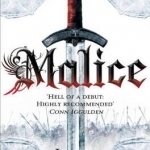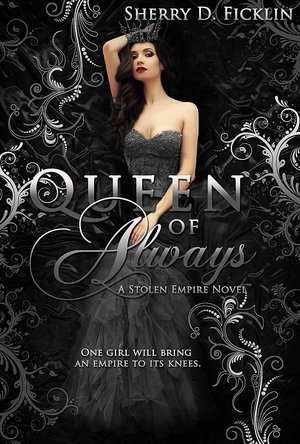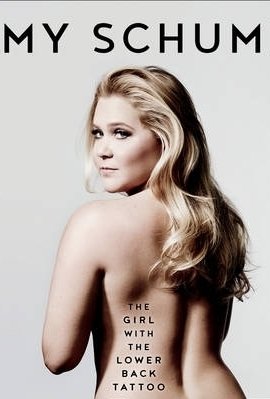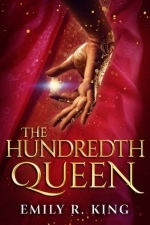Search
Search results
Ross (3284 KP) rated Malice: Book One of the Faithful and the Fallen in Books
Dec 1, 2017
The action (1 more)
The hints of the epic story still to come
The number of characters and places to try and remember (1 more)
A little long and derivative
This book, the first in a series of four, chronicles the beginning hints at the coming God-War, a time when the forces of good and evil will battle for the world (pretty standard fantasy fayre), with prophecies unfolding and battles for thrones.
The book moves between different character PoVs, which is fairly common these days, but I found some of the characters to be indistinguishable. For the first third of the book, if the PoV was Camlin, Kastell or Veradis I struggled to remember who he was or what he had been doing. This did start to improve around the halfway mark, but it is quite a slog at times to remember the events preceding this chapter.
The bulk of the book, however, follows Corban, a young blacksmith's son hoping to become a warrior some day, but is stuck working his da's forge, helping stablemaster Gar or apprenticing to healer Brina. His development over the book is well told, he doesn't suddenly become a master swordsman but at the same time we don't have to sit through chapter after chapter of him learning sword forms (Rand al Thor could learn a lot from Corban!).
Along the way, Corban has also become friends with a wild wolven (giant wolves hunted near extinction), whom he raised from a pup. Yes, exactly like the Stark children in GoT. Leave it.
The political intrigue and manoeuvring throughout the book is great as events seeming to be based on one king/queen's ambitions actually turn out to be based on another's treachery.
The battle scenes are well told and believable without the main characters always escaping unscathed.
The book finished with a number of deceptions uncovered and the main group of characters fleeing for their lives, with more secrets to be uncovered.
The book moves between different character PoVs, which is fairly common these days, but I found some of the characters to be indistinguishable. For the first third of the book, if the PoV was Camlin, Kastell or Veradis I struggled to remember who he was or what he had been doing. This did start to improve around the halfway mark, but it is quite a slog at times to remember the events preceding this chapter.
The bulk of the book, however, follows Corban, a young blacksmith's son hoping to become a warrior some day, but is stuck working his da's forge, helping stablemaster Gar or apprenticing to healer Brina. His development over the book is well told, he doesn't suddenly become a master swordsman but at the same time we don't have to sit through chapter after chapter of him learning sword forms (Rand al Thor could learn a lot from Corban!).
Along the way, Corban has also become friends with a wild wolven (giant wolves hunted near extinction), whom he raised from a pup. Yes, exactly like the Stark children in GoT. Leave it.
The political intrigue and manoeuvring throughout the book is great as events seeming to be based on one king/queen's ambitions actually turn out to be based on another's treachery.
The battle scenes are well told and believable without the main characters always escaping unscathed.
The book finished with a number of deceptions uncovered and the main group of characters fleeing for their lives, with more secrets to be uncovered.
FA
Fractional and Multivariable Calculus: Model Building and Optimization Problems
Book
This textbook presents a rigorous approach to multivariable calculus in the context of model...
Leah (: (569 KP) rated Queen of Always (Stolen Empire, #3) in Books
Feb 4, 2019
This book was the conclusion to the series. As the title would suggest this is the book where we see Catherine take the throne and finally become queen.
This book started a few months after the last one finished which meant the first part was spent catching up on what had happened.
Unfortunately there becomes a love triangle in this book which is something I just don’t enjoy and became frustrated with Catherine and her inability to just pick and commit to one person.
This book was a great conclusion to the series and tied the story up nicely. It left at a good point and where history would be able to fill in. I did feel that the ending was a bit rushed and didn’t like the one chapter change in POV although I do know why it happened.
Personally I still enjoyed this book just not quite as much as the previous two.
This book started a few months after the last one finished which meant the first part was spent catching up on what had happened.
Unfortunately there becomes a love triangle in this book which is something I just don’t enjoy and became frustrated with Catherine and her inability to just pick and commit to one person.
This book was a great conclusion to the series and tied the story up nicely. It left at a good point and where history would be able to fill in. I did feel that the ending was a bit rushed and didn’t like the one chapter change in POV although I do know why it happened.
Personally I still enjoyed this book just not quite as much as the previous two.
Erika (17789 KP) rated The Death of Mrs Westaway in Books
Jan 14, 2019 (Updated Jan 14, 2019)
I wanted to love this book. I liked Ware's Woman in Cabin 10, and with all of the blurbs saying it was a lot like Agatha Christie's cozy mysteries.
NEVER INVOKE THE QUEEN OF MYSTERY IF IT'S A SHIT BOOK. I got about 30 percent of the way into this book, and had it all figured out. So I didn't even bother reading the rest, I just googled the plot, and sources told me I was correct, then, for good measure, I read the last chapter. It was not atmospheric, as some suggest. It was plain boring. The main character, Hal, was completely obnoxious. I got that she was poor, because it was mentioned legitimately once every few pages. Everything was just so blatantly obvious. And please, authors, for the love of god, STOP USING INCEST as a plot point.
Because of this book, I'm probably never going to read another Ruth Ware book. I am completely angry I wasted time on this POS book.
NEVER INVOKE THE QUEEN OF MYSTERY IF IT'S A SHIT BOOK. I got about 30 percent of the way into this book, and had it all figured out. So I didn't even bother reading the rest, I just googled the plot, and sources told me I was correct, then, for good measure, I read the last chapter. It was not atmospheric, as some suggest. It was plain boring. The main character, Hal, was completely obnoxious. I got that she was poor, because it was mentioned legitimately once every few pages. Everything was just so blatantly obvious. And please, authors, for the love of god, STOP USING INCEST as a plot point.
Because of this book, I'm probably never going to read another Ruth Ware book. I am completely angry I wasted time on this POS book.
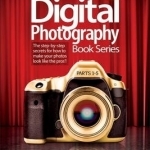
The Best of the Digital Photography Book Series: The Step-by-Step Secrets for How to Make Your Photos Look Like the Pros'!: Parts 1-5
Book
What could top the #1 best-selling photography book of all time? We're talking about the...
Rachel P (2 KP) rated The Girl with the Lower Back Tattoo in Books
Jan 4, 2018
This is not a hilarious book... Sure, I laughed out loud at parts, but it's a serious novel touching on serious issues. I was hooked by chapter one and seriously loved Amy Schumer more and more as I read on (I am NOT a fan of her show or comedy). She seriously stole my heart. I cried more than once and am touched by how genuine she is.
BookCritics (259 KP) rated The Hundredth Queen in Books
Jun 2, 2017
As soon as I started reading, I wanted to stay. In fact, I knew this book would get five stars from me on chapter six. Not much had happened yet, but I was already in love with Emily R. King’s writing style. It’s effortless, but vivid
Critic- Jackie Peterson
Original Score: 5 out of 5
Read Review: http://fictionistmag.com/reviews/one-in-a-hundred-the-hundredth-queen-emily-r-king/
Original Score: 5 out of 5
Read Review: http://fictionistmag.com/reviews/one-in-a-hundred-the-hundredth-queen-emily-r-king/

Biggest Book of Bread Machine Recipes
Book
Features: Over 375 recipes keep fresh loaves of scrumptious bread in the pantry; By varying...
Alice Waters recommended A Pattern Language: Towns, Buildings, Construction in Books (curated)
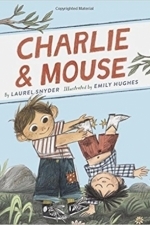
Charlie & Mouse
Emily Hughes and Laurel Snyder
Book
Four hilarious stories, two inventive brothers, one irresistible book! Join Charlie and Mouse as...
Children
